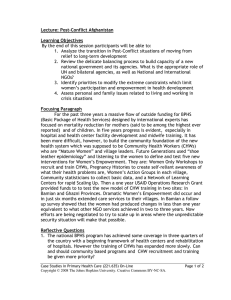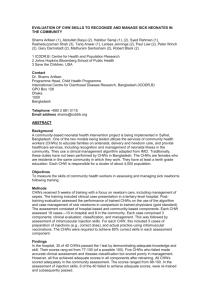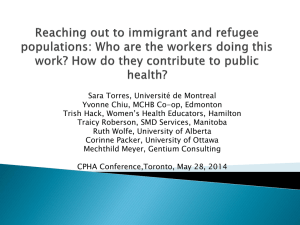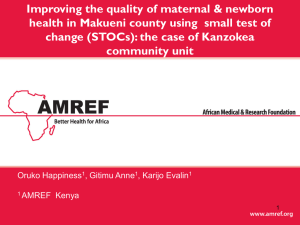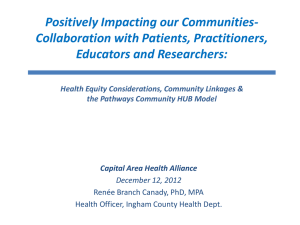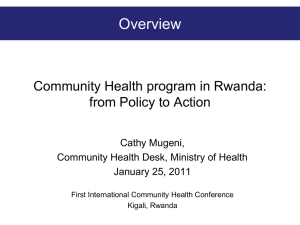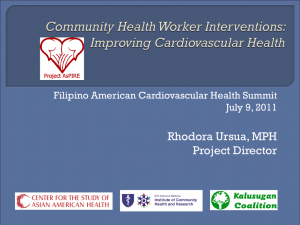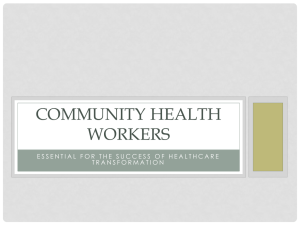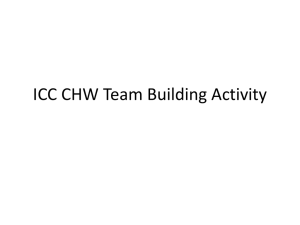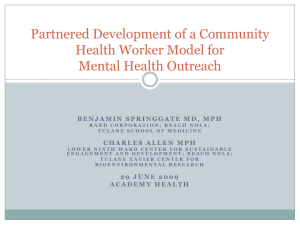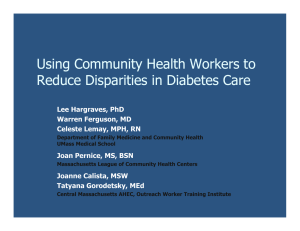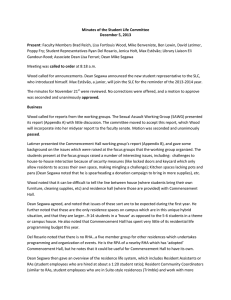Table 1 - Anova Health
advertisement
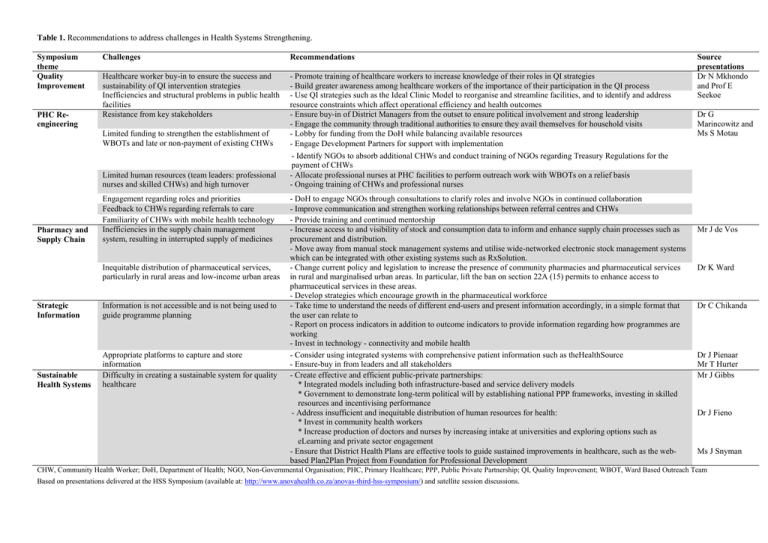
Table 1. Recommendations to address challenges in Health Systems Strengthening. Symposium theme Quality Improvement PHC Reengineering Challenges Recommendations Healthcare worker buy-in to ensure the success and sustainability of QI intervention strategies Inefficiencies and structural problems in public health facilities Resistance from key stakeholders - Promote training of healthcare workers to increase knowledge of their roles in QI strategies - Build greater awareness among healthcare workers of the importance of their participation in the QI process - Use QI strategies such as the Ideal Clinic Model to reorganise and streamline facilities, and to identify and address resource constraints which affect operational efficiency and health outcomes - Ensure buy-in of District Managers from the outset to ensure political involvement and strong leadership - Engage the community through traditional authorities to ensure they avail themselves for household visits - Lobby for funding from the DoH while balancing available resources - Engage Development Partners for support with implementation - Identify NGOs to absorb additional CHWs and conduct training of NGOs regarding Treasury Regulations for the payment of CHWs - Allocate professional nurses at PHC facilities to perform outreach work with WBOTs on a relief basis - Ongoing training of CHWs and professional nurses Limited funding to strengthen the establishment of WBOTs and late or non-payment of existing CHWs Limited human resources (team leaders: professional nurses and skilled CHWs) and high turnover Pharmacy and Supply Chain Engagement regarding roles and priorities Feedback to CHWs regarding referrals to care Familiarity of CHWs with mobile health technology Inefficiencies in the supply chain management system, resulting in interrupted supply of medicines Inequitable distribution of pharmaceutical services, particularly in rural areas and low-income urban areas Strategic Information Information is not accessible and is not being used to guide programme planning Sustainable Health Systems Appropriate platforms to capture and store information Difficulty in creating a sustainable system for quality healthcare - DoH to engage NGOs through consultations to clarify roles and involve NGOs in continued collaboration - Improve communication and strengthen working relationships between referral centres and CHWs - Provide training and continued mentorship - Increase access to and visibility of stock and consumption data to inform and enhance supply chain processes such as procurement and distribution. - Move away from manual stock management systems and utilise wide-networked electronic stock management systems which can be integrated with other existing systems such as RxSolution. - Change current policy and legislation to increase the presence of community pharmacies and pharmaceutical services in rural and marginalised urban areas. In particular, lift the ban on section 22A (15) permits to enhance access to pharmaceutical services in these areas. - Develop strategies which encourage growth in the pharmaceutical workforce - Take time to understand the needs of different end-users and present information accordingly, in a simple format that the user can relate to - Report on process indicators in addition to outcome indicators to provide information regarding how programmes are working - Invest in technology - connectivity and mobile health - Consider using integrated systems with comprehensive patient information such as theHealthSource - Ensure-buy in from leaders and all stakeholders - Create effective and efficient public-private partnerships: * Integrated models including both infrastructure-based and service delivery models * Government to demonstrate long-term political will by establishing national PPP frameworks, investing in skilled resources and incentivising performance - Address insufficient and inequitable distribution of human resources for health: * Invest in community health workers * Increase production of doctors and nurses by increasing intake at universities and exploring options such as eLearning and private sector engagement - Ensure that District Health Plans are effective tools to guide sustained improvements in healthcare, such as the webbased Plan2Plan Project from Foundation for Professional Development Source presentations Dr N Mkhondo and Prof E Seekoe Dr G Marincowitz and Ms S Motau Mr J de Vos Dr K Ward Dr C Chikanda Dr J Pienaar Mr T Hurter Mr J Gibbs Dr J Fieno Ms J Snyman CHW, Community Health Worker; DoH, Department of Health; NGO, Non-Governmental Organisation; PHC, Primary Healthcare; PPP, Public Private Partnership; QI, Quality Improvement; WBOT, Ward Based Outreach Team Based on presentations delivered at the HSS Symposium (available at: http://www.anovahealth.co.za/anovas-third-hss-symposium/) and satellite session discussions.
